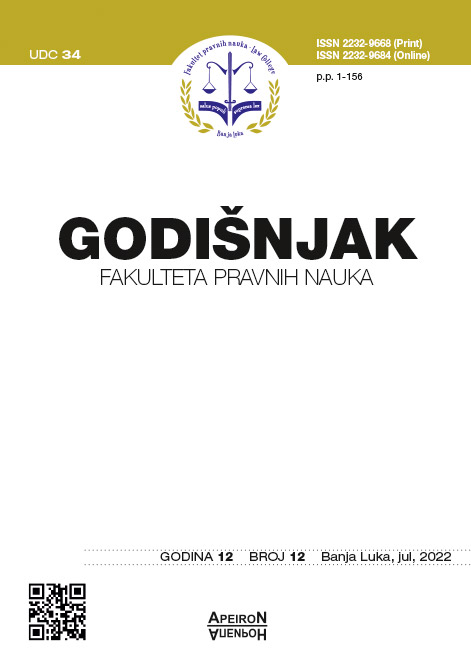Duration of Internal Displacement at the Intersection of Law and Politics
DOI:
https://doi.org/10.7251/GFP2212023MAbstract
Even though the question of when internal displacement ends was the subject of the UN-led standards-setting efforts and addressed in the resulting international soft-law norms, in practice, the determination of when an internally displaced person (IDP) is no longer in need of assistance and protection is still performed arbitrarily and on ad hoc basis. There are different explanations of why the rights-based criteria on the duration of displacement have not served their aim. In this paper, the authors identify another one by arguing that their ineffectiveness is caused in the first place by the essentially political nature of the matter they are supposed to regulate. The paper’s aim is to serve as a preliminary investigation and set the ground for a more systematic and in-depth analysis of the relationship between the law and the politics in the process of deciding when the internal displacement is over. To this aim, the paper provides an overview of the two main international soft-law instruments regulating the status of IDPs and a short analysis of the principal humanitarian, human rights and refugee law norms from which these soft-law instruments were derived or which have otherwise directed the identification of therein contained standards. The investigation shows not only that the two main international soft-law instruments tend to be inadequate as means to regulate the process of determining when a person should no longer be considered in need of assistance and protection as an IDP, but that the international law norms restated in these instruments as such cannot offer clear guidance on the matter. The inquiry also shows, in the context of protracted displacement, that where the impasse in the negotiation and/or implementation of a peace agreement reduces the traditional triad of durable solutions to only two of them – integration in the place of displacement and resettlement to the third place - the entire edifice of the rights-based criteria collapses. Such situations, the authors argue, demonstrate that the rights-based criteria on the duration of displacement can only serve as a framework for the essentially political deliberations on the matter.
